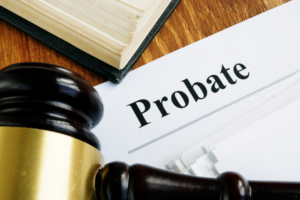How to accomplish a stress-free real estate transaction
The details of real estate transactions can be incredibly intimidating for individuals not familiar with the process. Even for seasoned buyers/sellers, the process can at times seem daunting.
Despite the complexities involved, there are various procedures that will greatly expediate the process. This article will help you understand some of those procedures to help you better prepare for the next real estate transaction.
First and foremost, it is imperative to familiarize yourself with the documents most commonly used in real estate transactions.
Secondly, the process involved in real estate transactions is also important to understand the progress of your transaction.
Documentsd most commonly used in real estate transactions
-
Purchase agreement
Once the buyer and seller agree on the price of a subject property, the execute a legally binding agreement called the Purchase Agreement.
This Agreement will outline terms agreed upon by the buyer and seller, and specify and conditions agreed upon by the buyer and seller that will govern the purchase/sale of the property.
-
Agency agreement
An Agency Agreement is a legally binding contract entered into by the seller and broker. By this Agreement, the broker now acts as the agent for the seller and represents the seller in the real estate transactions.
In addition to the duties of the broker/agent outlined in the Agreement, it will also list the agent commission that the seller will pay. It is important to note that the seller is responsible for paying the commission of both, the agent for the buyer and seller.
-
Seller disclosure form
The Seller Disclosure Form is a vital document executed by the seller that informs the buyer of the property’s known condition(s).
In Florida, a seller is obligated by law to disclose to a buyer any and all facts known to the seller that materially affect the value of the property. Especially, facts and conditions which would not otherwise be readily discoverable by the buyer’s “naked eye.”
-
Addendum, amendments, & riders
In real estate transactions, an Addendum allows the parties to add terms to the original Purchase Agreement. More generally, an addendum provides supplemental information to the original Purchase Agreement without changing the original content.
When an addendum to a real estate contract is executed, it must also be made part of the original agreement that was submitted. If the seller accepts the offer, the addendum must also be part of the terms agreed upon by both parties.
Amendments are used when removing or changing terms to the original Purchase Agreement. The Amendments change the core terms within the original Purchase Agreement.
Another document commonly used in real estate transactions is a Rider, which can address additional details, conditions, or terms to the Purchase Agreement.
-
Title insurance policy
The Title Insurance Policy will be issued at closing of the property. It is used to help protect buyers of real property against loss and/or damage due to defects in the title of the property. In addition, the title insurance company will stand behind the owner of the property should a problem come up after the closing.
-
Home inspection report
Once the buyer and seller sign the Purchase Agreement it is important to engage a certified licensed home inspector to thoroughly inspect the property. The inspector will go out to the property and inspect its structures, check for indications of mold, and any other defects that can potentially lower the value of the property.
Following the inspection, the inspector will issue a Home Inspection Report that buyers can use to leverage negotiations with sellers.
In summary, effectively organizing all your documents needed for the real estate transaction is vital for a successful transaction. To foster effective organization, you can create multiple back-ups in order to avoid losing those documents which can potentially lead to compromising the entire real estate transaction. Also, it is helpful to name or label all folders so that you can easily locate the needed documents. Lastly, it is best to have physical copies of the documents as well as those stored on your computer or cloud.
Tracking and organizing your documents during a real estate transaction can seem daunting; however, it can be accomplished without hassle and stress if done properly following the above instructions and suggestions. Therefore, learning how to stay organized and informed during a real estate transaction will help facilitate a successful real estate transaction.


